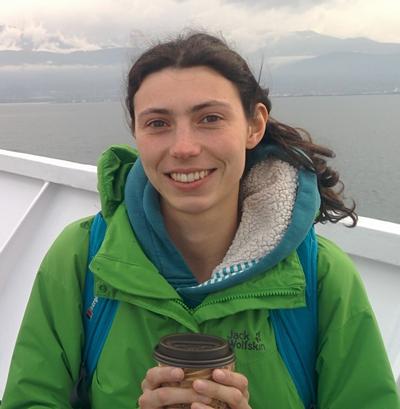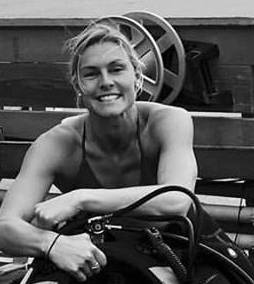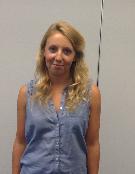The Group
Our group collaborates with colleagues across Exeter's Earth Systems Science and Geography disciplines, the Met Office Hadley Centre, and the Centre for Environment, Fisheries and Aquaculture Science.
Dr Paul Halloran (Group Leader)

Paul’s primary research interests focus on understanding the role of the marine carbon cycle within the Earth system. His multidisciplinary background allows this to be tackled in a novel way. He earned his degree and PhD in the Department of Earth Sciences at Oxford, examining ENSO change over the Pliocene, developing geochemical climate proxy techniques, and investigating the impact of ocean acidification on calcifying phytoplankton.
Paul later worked at the Met Office Hadley Centre as a scientist, contributing to the development of the Earth System Model HadGEM2-ES. In 2013, he joined the University of Exeter as a lecturer, becoming a senior lecturer in 2016.
Current Postgraduate Researchers and Fellows
Beatriz Arellano Nava
Beatriz is working on the CONVEX Seascape project, developing a coupled sediment-water column model to simulate blue carbon ecosystems to help understand potential feedbacks and work towards verification of their carbon removal/emissions.
Ismet Saygu
Ismet is working on teh SEACHANGE project developing historical Ecopath/Ecosim models to understand the marine ecosystem's influcence or response to critical transitions in human political and cultural development.
Current PhD Students
Ghuy Hooper

Guy is withing with PML on marine impacts of Direct Ocean Carbon Capture.
Jamie Atkins

Jamie is working with us, Cefas and the Met Office on seasonal prediction of the North West European Shelf sea.
Co-supervised Students
Gen Hinde

Gen is a NERC GW4+ funded PhD student working with Dr Marie-Jose Messias on using transient tracers to study heat and CO₂ uptake in the Southern Ocean.
Aimee Coggins

Aimee is a Royal Society-funded PhD student researching the Southern Ocean carbon cycle under the supervision of Andy Watson.
Alumni
George Manville (PhD)

George was researching Southern Ocean marine trace gases and climate in a joint project with the Met Office and PML. George moved to a PDRA possition in Princeton/GFDL.
Jen McWhorter (PhD)

Jen worled on an Exeter-Queensland scholarship PhD student working with Prof. Pete Mumby on downscaling global climate and biogeochemical model data to project coral reef futures. Jen moved to a research possition in NOAA.
Beatriz Arellano Nava (PhD)
Beatriz was working on the EU Horizon2020 project COMFORT, studying tipping points in coastal oceans using historical observations and high-resolution paleoclimate data. Beatriz moved into a PDRF possition with us on the CONVEX project.
Sarah Holmes (PhD)

Sarah undertook a NERC CASE (with Cefas) funded PhD student researching climate drivers of ecosystem change in the North West European shelf seas, integrating palaeoclimate reconstructions with shelf-sea modeling. Sarah moved to the Met Office and was seconded to the CCC.
Beth Langley (MbyRes)
Beth worked on a new method to isolate coccospheres from sediment and has since moved to a PhD in Glasgow.
Freya Garry (PDRA)
Freya was involved in the NERC-funded CLAM project at Exeter and the Met Office and now holds a permanent position at the Met Office.
Alice Lebehot
Alice worked on the RAGNARoCC project, studying North Atlantic pCO₂ variability, and has since moved to Capetown to work with Pedro Monteiro.
Lester Kwiatkowski
Formerly supervised by Peter Cox, Lester moved to Stanford for a PDRA position and is now at IPSL in France.
Matthew Couldrey
Matthew completed his PhD under Kevin Oliver (Southampton) and now works as a PDRA with Jonathan Gregory in Reading.





